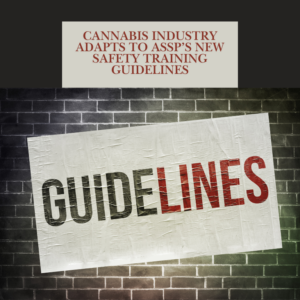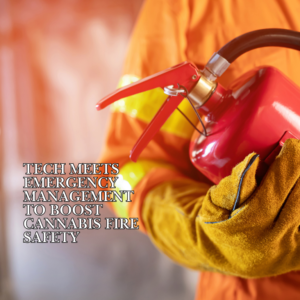A Guide to Cannabis Licensing and Permits in 2024


The legal cannabis industry has experienced significant growth and transformation over the past decade. With more countries and states legalizing the use of cannabis for medical and recreational purposes, the demand for clear guidance on cannabis licensing and permits has never been higher. As we step into 2024, navigating the regulatory landscape has become more complex, with evolving laws, market trends, and administrative requirements.
This guide will provide a comprehensive overview of the key steps and considerations for obtaining cannabis licenses and permits in 2024, whether you’re looking to start a cultivation business, open a dispensary, or operate in the cannabis supply chain.
The Importance of Cannabis Licensing
Cannabis businesses are subject to strict regulations that vary depending on the country, state, or even municipality in which they operate. Licensing is crucial because it ensures that cannabis companies comply with local, state, and federal laws. Without proper licensing, businesses face severe penalties, including fines, suspension, or even permanent closure.
Cannabis licensing also provides a pathway for businesses to operate transparently within the legal framework. Whether it’s for cultivation, distribution, manufacturing, or retail, obtaining the correct licenses is essential for maintaining credibility, gaining consumer trust, and staying in business.
Types of Cannabis Licenses
Before diving into the licensing process, it’s important to understand the different types of licenses available in the cannabis industry. Each type of license corresponds to a specific activity in the cannabis supply chain. In 2024, the most common types of cannabis licenses include:
Cultivation License: Allows businesses to legally grow cannabis plants. Cultivation licenses can vary in scale, from small craft growers to large commercial operations.
Manufacturing License: Grants permission to process raw cannabis into products such as oils, edibles, and concentrates. This license is required for companies that create cannabis-infused products.
Distribution License: Permits the transportation of cannabis products from one licensed business to another. This license is often required for companies that move products between cultivators, manufacturers, and retailers.
Retail License (Dispensary): Authorizes the sale of cannabis products directly to consumers. Retail licenses are often divided into medical and recreational use categories.
Testing License: Required for labs that test cannabis products to ensure they meet safety and quality standards. Testing is essential to confirm that products are free from contaminants like pesticides or heavy metals.
Delivery License: Allows businesses to deliver cannabis products to consumers. As online ordering grows in popularity, delivery licenses have become a crucial part of the cannabis market.
Licensing Requirements by Region
One of the most challenging aspects of obtaining a cannabis license is navigating the different laws and requirements across regions. Licensing regulations can differ significantly based on the jurisdiction in which you intend to operate. Here’s a general overview of how cannabis licensing might differ across key regions in 2024:
United States
In the U.S., cannabis remains federally illegal, but many states have legalized cannabis for medical or recreational use. As a result, cannabis businesses must comply with state-specific regulations. Some key states to watch in 2024 include:
California: One of the largest cannabis markets in the world, California offers a range of licenses for cultivation, manufacturing, distribution, and retail. However, the application process is notoriously competitive and expensive, with high fees and strict environmental and safety regulations.
New York: After legalizing recreational cannabis in 2021, New York has become a key market. In 2024, the state will continue to expand its licensing program, with a focus on social equity applicants. The New York Office of Cannabis Management (OCM) oversees the process, and licenses are available for cultivation, processing, distribution, and retail.
Florida: Known for its robust medical cannabis program, Florida remains a medical-use-only state. In 2024, Florida may see changes to its regulatory environment as more push for recreational legalization. Currently, licenses are in high demand, with significant capital requirements for applicants.
Illinois: Illinois is another state with a well-established legal market, both for medical and recreational cannabis. Licensing fees and application costs are high, but the state prioritizes equity applicants, particularly those affected by the war on drugs.
Canada
Since legalizing cannabis for recreational use in 2018, Canada has set the standard for national cannabis regulation. The licensing process is overseen by Health Canada and includes strict requirements for security, record-keeping, and quality control. Canadian licenses include cultivation, processing, testing, and retail sales, with different classes for small-scale and large-scale producers.
In 2024, Canadian businesses will continue to face regulatory scrutiny, particularly around product safety and consumer protection. The Canadian government is also focused on reducing illicit market sales and improving access to legal cannabis products.
European Union
The European cannabis market is still in its early stages compared to North America, but 2024 is expected to see significant progress, particularly in countries like Germany, which plans to legalize recreational cannabis.
Licensing across the EU can vary widely depending on the country. Medical cannabis is legal in several countries, including the Netherlands, Italy, and Portugal, but recreational use is more restricted. Businesses looking to operate in the EU must pay close attention to country-specific regulations, and obtaining licenses can be a lengthy, bureaucratic process.
The Licensing Process in 2024
Obtaining a cannabis license is a multi-step process that requires careful planning, attention to detail, and often a significant financial investment. Below are the key steps typically involved in securing a cannabis license in 2024:
Research and Planning
The first step is understanding the specific regulations and requirements of your jurisdiction. This includes determining what type of license(s) you need, the costs involved, and any local restrictions that may apply (such as zoning laws or limitations on the number of licenses issued).
You’ll also need to create a detailed business plan that outlines your company’s operations, financial projections, and compliance strategies. Most licensing authorities require a robust business plan as part of the application process.
Application Preparation
Once you’ve conducted your research, you’ll need to gather the necessary documentation to submit your application. This often includes:
- A business plan
- Security plans (for protecting cannabis plants and products)
- Environmental impact assessments
- Proof of financial stability (some jurisdictions require proof of capital)
- Background checks for all owners and key employees
- Floor plans or blueprints for your facility
Submission and Review
After submitting your application, the licensing authority will review it to ensure that you meet all legal and regulatory requirements. This process can take several months, and you may be asked to provide additional information or make adjustments to your application.
During this time, it’s important to stay in regular contact with the licensing agency and be prepared to answer any questions or clarify any parts of your application.
Inspection and Approval
Once your application is approved, many jurisdictions require an on-site inspection before issuing the license. Inspectors will visit your facility to ensure that it complies with all safety, security, and operational standards.
If the inspection is successful, your license will be issued, and you can begin operating. However, even after receiving your license, you must remain compliant with all regulations, as periodic inspections are common.
Common Challenges in Cannabis Licensing
Obtaining a cannabis license is not without its challenges. In 2024, some of the most common hurdles include:
High Costs: Application fees, legal expenses, and the cost of building a compliant facility can be prohibitively expensive for many aspiring business owners.
Regulatory Complexity: Cannabis regulations are constantly evolving, and keeping up with changes can be difficult, especially for multi-state or international operators.
Competition: In many regions, the number of licenses is limited, creating fierce competition among applicants.
Staying Ahead in 2024
The cannabis industry in 2024 continues to grow and evolve, but with this growth comes increasing regulation and scrutiny. Obtaining the proper licenses and permits is not only essential for compliance but also for building a successful, long-term business. By understanding the different types of licenses, staying informed about regional regulations, and preparing thoroughly, you can navigate the complexities of cannabis licensing and position your business for success in this burgeoning market.











